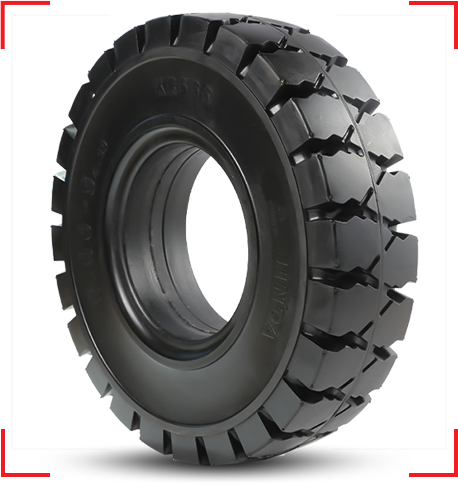Energy-saving solid tires are engineered to minimize rolling resistance, optimizing the forklift's energy consumption during operation. By reducing the effort required for the tire to roll, these specialized solid tires enhance fuel efficiency in internal combustion engine-powered forklifts or increase battery life in electric forklifts, ultimately leading to cost savings and improved sustainability.
One of the primary advantages of energy-saving solid tires is their unique tread design and specialized rubber compounds. These elements are crafted to lower rolling resistance without compromising traction or load-bearing capabilities. This innovation not only conserves energy but also ensures excellent grip and stability, maintaining safety and performance in various working environments.
Reduced rolling resistance results in decreased friction between the tire and the surface, translating into lower heat generation during operation. This decrease in heat build-up contributes to prolonged tire life, reducing wear and tear, and minimizing the frequency of tire replacements. Consequently, it lowers maintenance costs and enhances overall equipment uptime in material handling operations.
the enhanced energy efficiency of these solid tires leads to reduced fuel consumption in internal combustion engine-powered forklifts or extended battery life in electric forklifts. This efficiency directly translates into cost savings over time, making energy-saving solid tires a valuable investment for businesses seeking to optimize their operational expenses.
Another notable advantage is the environmental impact associated with energy-saving solid tires. By reducing fuel consumption in gas-powered forklifts or extending battery life in electric models, these tires contribute to lower carbon emissions and reduced energy consumption, aligning with sustainability initiatives in modern industrial operations.
While energy-saving solid tires offer numerous advantages, their design and construction may involve trade-offs in certain aspects such as initial cost and ride comfort. However, the long-term benefits in terms of reduced operational expenses and increased efficiency often outweigh these initial considerations.
Ongoing research and development efforts in tire technology aim to further optimize energy-saving solid tires. Innovations focus on refining tire compounds, tread patterns, and structural designs to continually enhance their energy-saving capabilities, durability, and adaptability to various operating conditions.




 Français
Français
 عربى
عربى
 Español
Español















